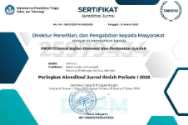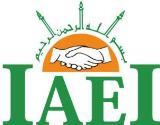BUDAYA EKONOMI: PRAKTEK AKAD MUZARA’AH PERSPEKTIF ETIKA EKONOMI ISLAM DI DESA TANGSIL KULON KECAMATAN TENGGARANG KABUPATEN BONDOWOSO
(1) * M Alief Hidayatullah
 (Universitas Nurul Jadid)
(Universitas Nurul Jadid) Indonesia
(2) Salim Rahmatullah (Universitas Islam Negeri Maulana Malik Ibrahim Malang)
Indonesia
(3) Ainur Rofiqul Azizi ()
Indonesia
(*) Corresponding Author
AbstractThis study aims to reveal the practice of muraza'ah contracts associated with an economic culture that is aligned with Islamic economic ethics in Tangsil Kulon Bondowoso Village. This study uses qualitative research with a descriptive analysis approach, and the data source is the people in Tangsil Kulon. The results of this study indicate that the practice of the muzara'ah contract in Tangsil Kulon Village uses the musyarakah principle with a split system adapted to the local community’s culture. The distribution in the form of percentages still has the disadvantaged party, namely the land owner, because the cultivator does not see whether the harvest is experiencing a profit or loss and thinks he is still working.
|
Keywords
Full Text: PDF
Refbacks
- There are currently no refbacks.
Copyright (c) 2023 Salim Rahmatullah
This work is licensed under a Creative Commons Attribution-NonCommercial-ShareAlike 4.0 International License.
Published by Islamic Faculty of Nurul Jadid University, Probolinggo, East Java, Indonesia.





.jpg)



